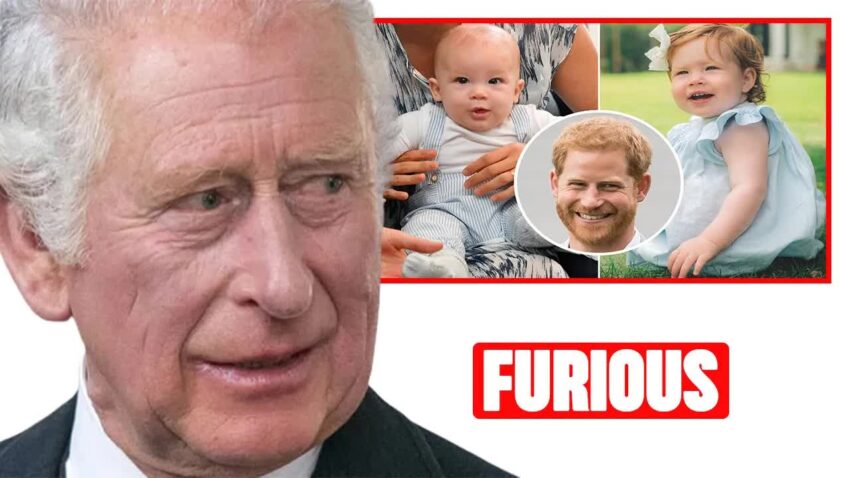Prince Harry and Meghan Markle’s children, Arch and Lilibet, will not be granted the titles of His Royal Highness or Her Royal Highness, according to King Charles III.
While the King has agreed to bestow the titles of Prince and Princess upon them, he has refused to allow them to be addressed as His or Her Royal Highness.
This decision has reportedly left the Sussexes furious and concerned about the security of their children.
The couple has argued that without the HRH titles, their children will have inadequate security.
They have also pointed out that Princesses Beatrice and Eugene possess HRH status despite not being working royals.
“Harry and Meghan were worried about the security issue,” a source revealed.
“Being Prince and Princesses brings them the right to have certain levels of royal security.”
The discussions surrounding this matter have been ongoing for the past week.
The Sussexes have been persistent in their demand for Arch and Lilibet to be recognized as Prince and Princess.
However, they are now disappointed and angered by the fact that their children cannot take on the HRH title due to their non-working royal status.
Interestingly, some royal fans have expressed concern over the amount of time Harry has spent away from his children.
Comparisons have been drawn to Prince William and Kate Middleton, who have not been separated from their kids for such extended periods.
Speculation has arisen regarding Harry’s commitment to his marriage and whether his desire for children was driven by a need to compete with his brother.
Furthermore, it has been noted that Harry and Meghan recently visited the UK and Germany, and will remain abroad for another week.
It is suspected that they may stay even longer to address various matters or continue advocating for the desired titles.
Concerns have been raised about Harry’s prolonged absence from his children, with some sympathizing with the youngsters and expressing sadness over the situation.
But what exactly does HRH stand for, and how do individuals with this title differ in treatment?
HRH stands for His Royal Highness or Her Royal Highness.
In 1917, King George V declared that both sons and daughters of the ruling monarch, as well as grandchildren from the sovereign’s male line, were entitled to this distinction.
However, Queen Elizabeth II revised the rule in 2012, specifying that only the children of Prince William, the Prince of Wales’ eldest son, would be entitled to HRH titles.
This change left Prince Harry in a gray area.
Having an HRH title not only grants a salary as a working royal but also ensures official protection and security.
Additionally, it mandates individuals to bow or curtsy when approached by an HRH.
